University
The Parents’ Guide to 2023-2024
HIGHLIGHTS:
• What’s the right course
• Questions for open days
• UCAS explained
• What to put in a personal statement
• Results Day 2024



The Parents’ Guide to University 2023-2024


• What’s the right course
• Questions for open days
• UCAS explained
• What to put in a personal statement
• Results Day 2024




This guide has been produced by The Parents’ Guide to and is licensed to Glyn School to share with parents and others connected with them throughout the 2023/2024 academic year. Click here to learn more.
Wherever we refer to ‘parents’ we mean ‘parents and carers’. This includes grandparents, older siblings or any other person with significant caring responsibilities for children.
Contact
Email:
info@theparentsguideto.com
Follow us on :
Twitter: @Parentsguideto
Facebook: @Theparentsguideto
Instagram: @Theparentsguideto
Subscribe:
www.theparentsguideto.co.uk/join-us
► Useful links
If you want to delve deeper and find out more, we’ve included useful links to other reliable sources. Simply click on the picture icons to be taken to our recommended websites.
► Interactive
To make moving around this guide easier, the contents and chapter headings are interactive. Simply click on a heading to be taken to the chapter or page you would like to read.
► Call out boxes
Information we think is particularly important has been highlighted throughout this guide; pay special attention to these!
► Summaries
To help save you time, we have provided useful summaries at the end of each chapter containing the key points.
► Key terms
Easy to understand definitions are provided throughout this guide in the key terms boxes. Don’t let tricky terminology stop you from supporting your child.
► Case studies
Real-life examples give you a chance to hear directly from teens, parents, and teachers about their experiences.
This guide does not need to be read sequentially – browse what interests you most.








Half of all UK students applying to university have never had a parent go through
the process

The prospect of your child going to university is very exciting. Attending university can offer them a great foundation for their future success and happiness; both in obtaining further qualifications and in providing a protected environment to transition from teenager to adult. It’s an exciting time for you too. Yes, it’s only their hard work that can get them to university, but you’ve contributed along the way with love, support and encouragement.
It can be a daunting time as well. There is pressure to make the right choices, a myriad of options available and the prospect of a different way of life, not only for them, but for you too. Selecting the right university will be one of the most important decisions your teen faces and you will want to help them every step of the way. The “right” university means the right university

for them: one which offers courses they’d like to study; where they will fit in and feel comfortable; one that will stretch their abilities without breaking them; and one where they will feel safe and happy. The “right” university for one student may not be the same for another – even within the same family. So how do you decide what is right? We’ll guide you.
Of course, whilst going to university is first and foremost about getting a higher-level qualification, it offers much more than that. It’s about learning to research independently, create professional relationships, develop lasting friendships, live without parental supervision, take up lifelong hobbies and interests. It’s learning to be a grown-up: self-reliant, resourceful and confident. It’s a time when you’ll get to watch your teen become an adult.
If you’re interested in regular updates about other ways you can help your teenage children, click here and join our online community.

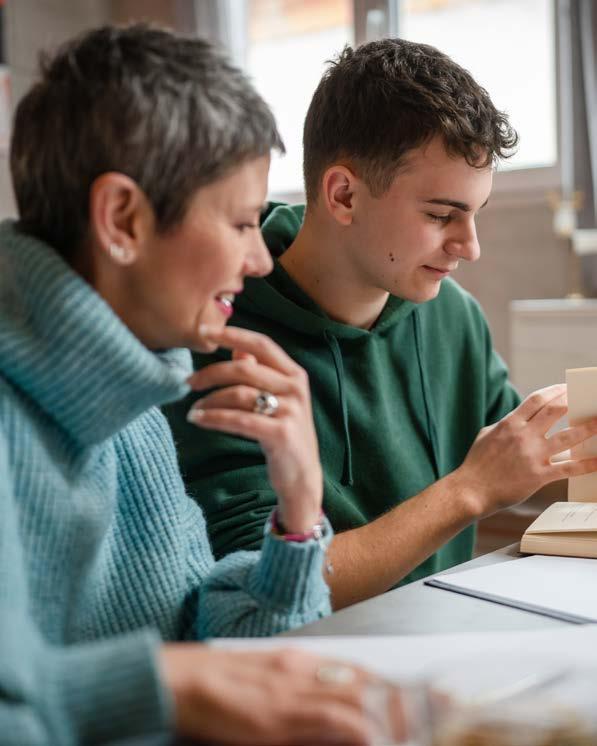
The selection and application process can seem complicated, especially if you have not been to university yourself. If you have, that may have been some time ago and things have probably changed. There’s plenty of great information online for students, but very little designed specifically for parents, so it can be quite complicated to track down the exact information you need.
That’s why we’ve created this straightforward guide covering the application process, starting from what your child should consider in making good choices to what happens on results day once they’ve completed sixth formand everything in between.
This includes step-by-step information on:
• What to look out for when considering different universities and courses;
• The UCAS application process;
• What to do on results day, whether predicted grades have been matched, surpassed or missed.
With so much depending on it, the thought of applying to university can be stressful for parents and children alike. We believe that once you understand the process and timelines, this will eliminate much of the stress for you (and, in turn, your child) ensuring energy is focused in the most constructive way to get the best possible outcomes.
Our aim is to help you provide calm and informed support, with the ultimate goal of helping your teen create a future to fulfil their potential. This will empower you to offer more helpful guidance to your child, with the ultimate goal of helping them create a future to fulfil their potential and make themselves (and you!) happy.
Researching universities and courses should be an enjoyable experience, not a headache. Don’t forget: your child has as much choice and influence in selecting the right university as the university has in selecting the right students.


I had a preferred university when I was researching potential courses, but I changed my mind after visiting. “
Ancient, Russell, Civic or PlateGlass? Different terms are used for different types of university and this can be confusing. Some universities are members of more than one group whilst others choose not to be members of any. There are over 150 universities vying for applications. What’s the difference and do the names mean anything?
Broadly speaking, the categories of university relate to the time at which they were established. This lends itself to different subject specialisms and teaching styles.
The original seven “ancient” universities were established before 1600. The earliest was the University of Oxford in 1096 and the latest was the University of Dublin in 1592.
“Red Brick” (or “Civic”) universities were established during the industrial revolution of the 1800s, usually in cities. They got their name because of their iconic red brick - a popular building material at the time. The original six members (Birmingham, Bristol, Leeds, Liverpool, Manchester and Sheffield) specialised in much needed vocational skills such as medicine and engineering (rather than the arts, language and theology as
studied at earlier universities). Some other universities established after the 1800s are also included in this category, although some dispute whether they deserve the classification – irrespective of the fact that, being built later, their architectural styles are not in red brick.
The “Plate Glass” (or “plateglass”) unis were established during the 1960s and, like red brick, take their name from the construction materials of the buildings –typically plate glass in concrete frames. Plate Glass Universities were the next batch of universities to be given royal charter between 1963 and 1992.
“New” universities generally refer to what were previously called polytechnics until gaining university status from 1992 onwards.

Some universities belong to the “Russell” Group. The name originates from informal meetings held in the Russell Hotel of 17 university heads who were keen to ensure their interests were represented to government. The group was incorporated in 2007 and there are currently 24 Russell universities, all of which have an excellent reputation for research, teaching and industry sector links. They are considered the

top universities in the country, and certainly benefit from high levels of funding (they receive almost two-thirds of all research funds) and, given their strong reputation, entry requirements are likely to be high. Does obtaining a degree at a Russell university make a difference? No doubt, there’s a certain kudos attached, but other universities might offer more appropriate opportunities so try not to be biased. Click

Most universities follow the academic year of schools, starting in September / October and finishing in June / July with three terms.
Ancient Universities (such as Oxford, Cambridge, Edinburgh) have been established over many centuries and tend to offer traditional subjects (Maths, English, languages) taught in a traditional style. By contrast, newer universities (such as Loughborough, York and Suffolk) offer more vocational subjects taught using less traditional methods. Personal learning styles are important to consider. If your child excels when given lots of direction and little autonomy, a more traditional learning environment might help them achieve better results and vice-versa if they perform better when left largely to their own devices.
Try to find out about the university and its industry links. Strong ties with industry often indicate excellent internship and placement opportunities which is very attractive for post degree employment prospects, especially important if you do not have these links within your own families and contacts.
Like secondary schools, universities can vary enormously in size and the advantages and drawbacks should be considered depending upon your child’s learning styles. Large universities offer a much wider subject choice, alongside greater social opportunities with an astonishing array of clubs that could give your child the chance to learn a wonderful new hobby that lasts a lifetime. Smaller universities cannot compete with this (especially specialist establishments); however, they may offer a greater sense of community and belonging.

The big question here is “to campus or not to campus”. The great advantage of campus universities is that everything is in one place – lectures, accommodation, clubs, laundries, shops etc. They are usually situated just outside or on the borders of larger towns – “a town within a town”. The impression can be that they are safer, offer less distractions and provide a stronger sense of community because, in the main, students tend to stay campus based.
City universities offer the same facilities, but they are split up across

the town so travelling (sometimes some distance) from one place to another is part and parcel of the package. This provides a closer experience to life in the workplace for most people and it gives students a chance to become fully immersed in the city itself. Whilst approved accommodation may be offered in the first year or two, later in their degree students are often required to find their own accommodation independently. In some cases, universities won’t offer accommodation in halls if the family home is within a certain mileage, so it’s worth checking the university website. The


Flying the nest is more appealing to some than others! This is an important consideration. Attending university is, for most students, the first time they’ve lived away from home. For some, this is exciting and appealing, for others it’s traumatic and challenging.
Of course, there are practical implications too. If the university is close to home, it may be possible to avoid accommodation costs, although continuing to live in the family home can dilute the university experience in many ways – although this can be combatted by signing up to plenty of clubs and socials. But as parents it will be different for you too! Your lifestyle will change if your child continues to live at home but is attending university rather than school.
Is it important that your child can easily pop home at weekends or will they adjust favourably to only returning during holiday periods?
Rural or city based
Another consideration is whether your child prefers town or country living. A university’s location could drive many of the social activities they offer, so if your child is happiest immersed in the countryside and loves trekking, mountain-climbing and cross-country, they could feel short-changed by being plunged into an urban setting and vice-versa.
If your child has a particular passion, it is worth checking out whether the university already has a group focused around this hobby or, if not, how easy it would be to set up. Don’t consider it trivial to focus on pastimes, happiness is a primary driver for success, and a university’s environment can contribute hugely.
The tough challenge here is putting aside your preferences as a parent and supporting your child in the choices that are right for them – particularly if they are polar opposites to your own. Don’t forget, it’s natural to feel protective of your brood and want to keep them close but university provides a good opportunity for them to fly the nest in a protected environment.

Open days
Most universities offer an “open day” for prospective students, including lectures and talks, as well as existing staff and students on hand to answer questions. Websites, literature and videos can all give an excellent sense of the university, but nothing beats a personal visit.
If you can, join your child on visits without taking control; go with them on open days to give them support and guidance (it can be daunting visiting a new place, much more so when you think it could hold the key to your future happiness) but give them some time alone if they need it.
Don’t focus solely on the academic elements of the university. Check out halls of residence, social centres and sports facilities. If the university is town-based, spend time in the local area and give some thought to how it would feel living there for the next few years. It’s not a lifelong commitment, but three-to-five years, especially for a late teenager, seems a long time.
From a practical viewpoint, what looks like a hop, skip and a jump on the map could prove a deal-breaker when thinking of the practicalities of living in one part of town but learning in another.
It is vital your child arrives prepared to get plenty of answers to whether the university can meet their needs. Ideally, being armed with lots of questions to ask during a visit gives a good basis for conversation and interaction on the day, which could help them stand out.
However, if your child hasn’t yet gained the confidence to do this, then they could contact a student representative ahead of the visit and get answers by email or set up a chat with a student while they’re there. What’s important is to get a good sense of the comprehensive opportunities available and whether they are offered in an environment that suits your child’s personality to make the most of them.
No matter how appealing a course might be, if your child hates the feel of the university the minute they step in the door, it’s highly unlikely that they will get either the qualifications or experience they deserve. What looks good in theory doesn’t always match up in reality. Pay heed if they take an instant dislike to a place.
Remember to check the university websites. Some offer vouchers towards the cost of travel to open days.
Virtual Open Days
Some universities offer “virtual open days”. These may include video tours, online seminars and chats with students and lecturers. Whilst virtual open days do not provide the same insights as making a personal visit, do get your teen to make the best out

of them where physical visits are not possible. Without the need to travel, they may even be able to attend more open days, giving them a broader perspective on what’s on offer and how universities differ.

Encourage your child to make the most of open days

To get the best value out of university open days, it’s advisable to prepare in advance. Open days often include a variety of lectures, walking tours and presentations, so your child should check what’s on offer and plan accordingly.
In addition, they should make a list of questions that they want to ask each university so they can compare and contrast differences to help with their decision making. Which questions should they ask staff, which are better aimed at students, or should they ask the same questions to both? Don’t forget, even if
they can only take part in a virtual open day, there will still be an opportunity to ask questions.
Do not be afraid to ask questions. Open days provide the perfect opportunity to receive direct answers to questions that may be difficult to find online. Furthermore, answers to some questions may be different compared to the previous year, such as whether they would make exceptions to the entry requirements stated on their website. Both you and your child should think of some questions in advance rather than thinking on the spot.

Whilst open days provide an opportunity to receive information on the degree course and the university itself, nothing beats hearing from someone with first-hand experience of what it is like to study there. It’s a good idea for both of you to speak to current undergraduate students if the opportunity arises - ask them questions about teaching quality, societies, accommodation and the local area.
Walk and observe (if possible)
Walk around the campus and university town or city. Try to encourage your child to get a good feel for the environment. Can they imagine themselves living there? Do the students look happy? Is it a friendly place to be?
The art of seduction
Universities take the opportunity of open days to showcase their most impressive facilities. Be mindful, what you are being shown likely represents the very best they have to offer. Don’t let your child be totally seduced by this, they must make their decision based on plenty of other research too.
Don’t stress if you can’t attend
If you and your child are unable to make the official open day, then you could arrange a private viewing. Call the admissions team to arrange a suitable date and time to visit. Whilst you are likely to miss out on some of the lectures and presentations that are organised during an open day, you may still be able to speak with a member of staff from the relevant faculty. There may also be virtual open days and virtual tours available online.
• Will I still be considered if I do not meet my predicted grades or if I do not have the GCSE entry requirements stated on your website?
• Will you consider other qualifications when making an offer (e.g. music, EPQ, additional courses)?
• What is the university looking for in a student’s application / personal statement - is there anything I can do to increase my chances of being offered a place?
• Can you recommend any reading or activities to inform my personal statement?
• How do you feel about gap years and deferred entry applications?
• Do you hold interviews?
• Is it an advantage to get my application in early (before the UCAS deadline)
• How will the course be assessed? Will it consist mostly of coursework or exams?
• How many students will be on the course?
• How many hours of timetabled teaching does the university provide and what is the ratio between lecture and seminar teaching?
• What additional support does the university provide if a student finds certain parts of the course particularly challenging?
• Does the university provide any additional support for students with a particular learning difficulty (e.g. dyslexia)?
• Can a student take on part-time employment whilst studying?
• Does the university provide opportunities to study abroad / work in industry (or can you tell me more about these opportunities)?
• Can you tell me more about the student union and what opportunities there are for students to get involved?
• What sports and student clubs can I get involved with?
• Is a place in halls of residence guaranteed?
• What are the advantages and disadvantages of living on or off campus?
• Where do most students live in years two and three?
• Can you bring a car? Is there parking available?
• What type of careers / jobs do students go on to have after graduating?
• What does the university offer with regards to career support and guidance?
• What’s on offer here that will provide opportunities for me to develop my employability skills? Does the university have connections with local employers?
• Will it be possible to take on part-time work during term time?


University is about much more than obtaining further qualifications. To succeed, your child must feel comfortable.
1. Think abut location, size, and atmosphere of the university;
2. Choosing the right course is more important than the university type;
3. Will distance from home affect your child’s success and happiness;
4. Will your child do better in a closed (campus) or town-based (non-campus) environment;
5. Take advantage of open days or university visits, and try to ensure your child prepares in advance.

Virtual tours of the campus and accommodation might not be as good as the real thing, but they’re still worthwhile and give a good idea about what’s on offer
You may also be interested in:
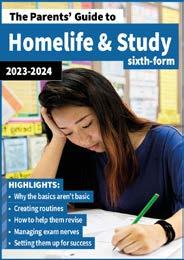
The Parents' Guide to Homelife and study
Includes information on:
• Keeping them healthy
• Providing the right homelife
• Ways to help them revise
• How to support them during exam time
• How to help them with exam nerves


Don’t worry if the right university for your child is far from home and you don’t get to see each other as often as you would like. Sara could only come home during the holidays, but we found lots of ways to keep in touchFacetime and Whatsapp were our favourites.
Make sure the university offers facilities for your child to enjoy their hobbies. The Olympic sized swimming pool at Birmingham university enabled Chris to continue competing on a national level.
After a lot of research, I decided to do a degree course in Space Science and Robotics. I may never be an astronaut, but I could develop equipment that gets used in space. “


Most university courses offer a threeyear undergraduate programme, but some offer “sandwich” courses which last four years, one of which is spent in the workplace (which could be overseas). There’s also the opportunity to obtain certificates of education, diplomas, higher national diplomas and foundation degrees.
Usually three or four years long, these can be single subject, dual subject (dual or joint honours) or several subjects (combined honours). Typically there’s a quantity that everyone studies – the core – and then options to specialise by taking different modules. Some bachelors offer sandwich courses, which means an additional year in a work placement as part of the degree. In some cases there’s the option to convert the bachelors to masters by studying for an additional year.
Bachelor of Arts or Science?
The major difference between a Bachelor of Arts (BA) and a Bachelors of Science degree (BS or BSc) lies in the subject chosen for study (i.e. more science focused or arts focused). For some subjects, this classification may differ between universities, such as economics and psychology. In this case, a BSc in economics or psychology is normally more suitable for students with an aptitude for maths and scientific study compared to their BA equivalents.
Foundation years
This is a one-year study period that can count as the first year towards a degree or as a standalone course. Foundation years are designed to increase knowledge in specialised subjects required for a degree course and are usually taken if students didn’t meet the entry requirements of the university either because of poor grades or different subject combinations.
Diploma in Foundation Studies (art and design)
A route towards art and design courses allowing specialisation in a student’s specific area of art or design.

Foundation degrees
Not to be confused with foundation years, foundation degrees last two years and offer an alternative if a pupil hasn’t reached the grade for a degree course, doesn’t want to commit to three or more years at university, or prefers more vocational study. They can be “topped up” with a final year to equate to a bachelors degree.
Degree of bachelor level apprenticeship
This is a comparatively new university offering, allowing students taking an

apprenticeship to gain a bachelors (or masters) qualification by both working and studying at university part time.
Higher National Certificates (HNCs) or Diploma (HNDs)
The Certificate takes one year and is equivalent to a first year degree course, whilst the diploma takes two years and is equivalent to the first two years of a degree course. Both can be topped up to a full degree by extending the course or joining a degree course at a later stage. The benefit here is to be able to study for a degree in stages.



Choosing the right course is more important than the university type Useful
With over 30,000 courses available the right course is out there – it just might be tricky to find it! There is plenty of information about university courses available so it’s worth researching diligently before making choices, rather than students relying on “my teacher recommends it”, “my parents took it”, or “I like the university”.
This research is something that your child should undertake – not you on their behalf. Avoid the temptation to use this as an opportunity to investigate options you would have liked to take given the chance. It may be tough with the benefit of hindsight and experience, but try not to forget it’s your child’s life and their choices, not yours.
Thinking of favourite subject choices is a good way to narrow focus, but don’t forget many of the subjects offered at degree level aren’t covered in sixth form options, so don’t let your child restrict themselves to only considering topics they’ve already studied. Of course, if they
are already set on a certain career path, their choice of degree may be obvious, which can be helpful. If not, some thought and reflection on things they enjoy that might apply to the workplace can give direction so some research on jobs might help streamline options by providing guidance on routes into industry.
If they are struggling with a starting point, investigating what’s of interest to them is a good place to start. You think they spend too much time playing video games? How about a BA in Computer Games Design – it can be a lucrative business post-graduation. Not academic but loves sports? BA in Sports Management. A passion for understanding how things work? How about MEng(Hons) in Product Design Engineering? Always reading crime thrillers? Perhaps they’d enjoy a BA in Criminology.
Your child should research courses with entry requirements that are closely aligned to their predicted grades, allowing for some aspirational and safe choices either side.
There is plenty of information about university courses available, and whilst it's up to your child to do the research, as parents you can help guide them by checking that the courses they shortlist fit their personality. For example, a child that likes to be active and enjoys practical
studies and getting involved is likely to do better on a course that has plenty of experiential learning rather than one that is largely based around lectures and seminars. Here are some suggestions for things to consider when deciding whether a course meets your child's needs:
Do they enjoy being in the classroom?
Is your child academic or practical?
Do they enjoy learning in a studio or outside?
Do they enjoy writing essays and researching topics or prefer to make and produce things?
Which school subjects do they enjoy?
Is there a particular part of a school subject they have enjoyed?
Do they have a natural flair for a subject?
If they enjoy more than one subject, are there any common themes?


What are your child’s hobbies?
Is your child particularly passionate about any music, sport or art related activities?
Think about your child’s personality traits
Try to think outside the box - do they have a particular interest in current affairs? Gaming?
Helping others?
Has your child expressed interest in a particular career?
Try to think of subjects that will help them pursue this career without narrowing their options too much if they change their mind later
By the time I began Year 13, I had narrowed my degree to two possible choices - an art related course or biology. Whenever I explain this to people, they are always surprised. I enjoyed both, I was on track for As and I had no idea about a potential career path.
Having attended a fairly academic school, there was a certain pressure to choose biology. However, it was the comments of one friend that made me finally choose a degree in illustrations. He said I should choose an art
based degree as I was always seen doodling in my sketch book. His comments made me realise what I actually had a passion for - outside of the classroom and during my spare time.
I have never regretted this decision. Dedicating three years to a subject I enjoyed beyond study led to some of the best years of my life. I am now working for a large marketing company creating online illustrations for a range of clients - a career choice I never considered when I was at school.


National league tables are published annually by the Complete University Guide, The Guardian and The Times / Sunday Times. They cover a range of factors including student satisfaction, entry standards, facilities and academic services amongst others and focus on full-time student experience (not part-time).
Well established universities have had a long time to hone their subject offerings and know how to perform well in league tables. By contrast, new universities do not have this advantage but often excel by offering new, innovative subjects which can prove more relevant to today’s working environment. A variance of 20-30 places could indicate as little as a couple of points difference, so bear this in mind when considering where a university is ranked. It’s also worth noting that universities that rank highly in national tables don’t always rank well in international tables as the criteria applied are different. If you spot a big difference, it’s worth visiting the university website directly, as they sometimes offer explanations - or you could call them.
It’s worth reviewing subject league tables to see how the chosen university delivers in the specific subject areas of interest. This is different from national league tables, which shows how a university performs overall. It’s possible that a university may rank low on overall league tables, but be very strong and well-respected in a particular area of study (and vice versa). Also, check for professional accreditation by approved membership bodies if seeking out a professional degree – this is a good indicator of whether the course is highly regarded within industry and whether or not it’s equally valued both within the UK and internationally.
The TEF rating is decided by an independent expert panel including students, academics and employer representatives to assess the quality of teaching within a university. Ratings awarded are gold, silver or bronze. Participation is voluntary, so not all universities will have TEF ratings. Do note that a revised TEF scheme is under development and results should be available in 2023, meanwhile universities have been advised not to advertise their ratings, as many ratings are out of date and not a current reflection of teaching quality.
Different universities have different entry requirements, so it’s important to check the university’s website for details. Entry requirements are set out by the university to assess whether your child is suitable for a particular course.
Subject combinations, types of qualification and subject grades needed for entry not only vary from university to university, but may also differ within the same university for different degrees. As a rule, universities are not flexible about their entry requirements (i.e. if they set minimum grades, your child will have to reach those grades); however, there are sometimes exceptions to rules (if your child can offer something special or if many students have failed to meet the entry requirements that year) so it’s always worth speaking to admissions to see where they might flex requirements.
Not all sixth form qualifications are considered equal by some universities. For example, some do not accept BTEC or T Levels and others consider certain A Levels weightier than others.
Some universities not only require a specified qualification grade at A Level (or minimum number of UCAS
points) but they also have their own admissions tests / examinations to help them assess candidates like for like. Interviews may also form a critical part of the application process, but not for all universities. If applying for performing arts, auditions will also be likely to feature and other art subjects may require the development of a portfolio.
GCSEs could matter
Some universities may also specify certain GCSE results. With AS Levels no longer contributing to your child’s final A Level grade, universities are increasingly looking at GCSE performance as a formal indicator of your child’s academic ability.
It’s worth checking
Always check with the university (by ringing the admissions tutor) if your child’s particular qualification is not listed on their website. Some universities are willing to be flexible for the right candidate.

Tariff calculator
In order to compare students as equitably as possible, UCAS offers a tariff (previously known as the “points system”) whereby each sixth form qualification is awarded a certain number of points according to a combination of the time spent studying it and the grade achieved. This tariff is recognised nationally across the UK and universities use it to gauge the standard of achievement for sixth form students. It enables them to make comparisons between students who have studied different types of sixth form courses – i.e. National Highers, BTEC, A Levels etc.
Depending on the perceived course difficulty and the type of university, the minimum entry requirements will vary both from university to university and from course to course within the same university. Not all post sixth form establishments cite a UCAS tariff, they might specify grade requirements (i.e. x3 A Levels, minimum ABB), but it is the same thing. However, if they do cite a UCAS tariff (i.e. minimum 120 points), check out the tariff tables using the UCAS calculator to work out what qualification and grades will be needed to gain university entry.

University websites may look different when comparing side by side, but the information they relay is similar and will definitely cover course content, information about the teaching style and entry requirements.
It’s important to be aware that degree courses vary significantly between universities:- even when the degree title is the same! So make sure your child pays close attention to understanding the differences in course modules, assessment methods, teaching styles and entry requirements between universities.
These differences could be deciding factors in which course (and university) is your child’s preferred option. For example, if there are two universities of similar rankings and style that they like almost equally, where one offers a course with a teaching style better suited to their personal learning preferences, or course content more closely matching their areas of interest - perhaps they are really keen to have overseas experiencethis would be a significant contributor to their final decision.
Degree courses vary between universities and each degree may provide a very different experience for your child.
Thoroughly research the modules that each degree provides by comparing core modules (mandatory modules of study) and optional modules between each university degree.
Furthermore, some universities may provide additional options, such as a the possibility or studying abroad (usually in a partner university) or a year long work placement. These may be important considerations in giving your child a particular advantage when entering their chosen career.
Not all students learn in the same way so it is important to research how each degree is delivered and assessed. If your child is particularly anxious when it comes to examinations, then choosing a degree which is mainly assessed through coursework or presentations may increase your child’s chances of success.
Moreover, think carefully about your child’s learning needs. Will they thrive in small classroom based environments (seminars), lectures or more practical learning environments?
Each university sets its own entry requirements so make sure your child is accessing courses based on their ability and potential. Entry requirements provide a good indication of the difficulty of each degree course and so it is important to be realistic in what your child can access when moving into higher education.
Remember, your child can only apply to a maximum of five universities through UCAS, so carefully note all the entry requirements for each university before applying to check whether your child is likely to meet these.
• What are the core modules that must be studied in years 1, 2 and 3?
• Which optional modules are on offer?
• Is there an option to study abroad?
• Is there an option to spend one year in industry?
• Is there an option to combine this subject with another subject?
• Does teaching mainly consist of large lectures or seminars?
• Is the course largely exam based or coursework based?
• What are the facilities like?
• Is a dissertation in year 3 required?
• For practical subjects such as Media Studies, how much of the course is theoretical and how much is practical?
• What are the minimum entry requirements?
• Does the course require a grade in a particular subject?
• Will the course accept BTECs, T Levels or alternative qualifications to A Level?
• Do they require a minimum Level of Maths or English?
• Does the course require a portfolio or an interview prior to making an offer?
Choosing

It can take 6-8 weeks to hear about support entitilement

With university fees at almost £10,000 per year plus living costs on top, the prospect of committing to three or four years studying can seem as if the financial burden outweighs the benefits. But graduates earn more than school leavers and payback terms are linked to earnings (as explained later) so it can be a worthwhile investment.
Loan applications are made to the country of home residence, not the destination university through Student Finance. So, if your child lives in Scotland and is going to university in England, applications are made to Scotland. Student Finance is the organisation responsible for providing Tuition Fee Loans and Maintenance Loans to students at university. Applications must be made separately.
Applications for student finance can be made prior to receiving results and confirming a university offer. So, once application to UCAS has been completed, your child can make a provisional application for student finance whilst waiting on results. Loan applications must be made at least eight weeks before the course commences, otherwise payment may be delayed: don’t forget this covers both types of loan - tuition fees and maintenance loans. We recommend encouraging your child to apply early to ensure loans are processed on time.
The tuition fees (up to £9,250 per annum) are paid via Student Finance direct to the university (once the place has been accepted) and parental earnings do not impact this.
Tuition fee loan: the loan to cover the annual cost of the university degree
Maintenance loan: the loan to cover cost of living such as accommodation, food, course materials.
The maintenance loan is influenced by parental earnings. Simply put, the higher the family income, the less money granted:- parents will be expected to cover any shortfall. However, assessment is made on “residual” income – i.e. the money left over after debts and expenses have been paid (so not pre-tax earnings or even net income). This money is paid termly directly to the student, so make sure they know how to budget.
Where parents are separated or divorced, income is assessed on the parent with whom the child resides and (if applicable) their current partner (irrespective of whether or not that partner is responsible for the child). Income for the other biological parent is not assessed.
Repayments are collected via Student Loans Company, who work alongside HMRC to collect repayments in line with earnings after the degree is complete.
Repayment terms are generous, so avoid thinking that student loans are like conventional bank loans or even a mortgage. Importantly, no money is taken until earnings reach a certain threshold, they are paused if earnings drop below that threshold (maternity or redundancy), they are not evaluated on partner earnings and they are wiped clean after 40 years after the first payment was due.
It’s worth reviewing scholarships, grants and bursaries to see whether you child might qualify for additional income, particularly if they are studying for specialist degrees such as medical, social work or teaching.
Be careful with making pre-payments. Many students never repay the full amount of their loans before the amount is wiped clear. Trying to save on interest fees can prove a false economy. However, if they are likely to have continued employment at a high salary, then it might be worth making a prepayment. There are online calculators to help work this out.
Even with the maximum maintenance allowance, it may be necessary to supplement living costs, either through you contributing directly or your child getting work whilst studying:- or a combination of both!
1. No payments are made until the student is earning £25,000 in the April after graduation (or the April four years after their course starts if studying for more than four years);
2. Once they qualify for payment, they repay only 9% on any amount earned over the threshold (so if they earned £26,000 in April after graduating, they would pay £7.50 a month);
3. Repayments are docked directly at source and they cease if salary drops below the threshold;
4. Interest rates apply from when the loan is given (i.e. start of the degree);
5. Any outstanding debt is wiped clear after 40 years.



The Disabled Students’ Allowance (DSA) is assessed by individual need

For students with a learning need, mental health issue or disability, there’s the option to apply for dedicated funding to help with extra costs associated with their condition. It’s called Disabled Students’ Allowances (DSAs).
This is in addition to student finance and there is no need to repay the money awarded. It may cover specialist equipment (i.e. a computer, voice recognition software, dictaphone), non-medical helpers (i.e. proof reader, note taker, sign interpreter), extra travel (i.e. the cost of taxis if you child can’t take public transport) and / or accommodation contribution (i.e. if the bathroom needs to be adapted to meet your child’s needs). It is applied to costs incurred directly because of undertaking the course (rather than costs that would be accumulated anyway) and costs incurred over and above that of those made by any student without a similar disadvantage.
The allowance is assessed not by household income but individual needs and, upon eligible application, it will be
necessary to undergo a “study needs assessment” at an approved DSA centre (they will send you a link identifying local assessors). However, if a student is applying for both financial support and DSAs, they must complete their student loan application through Student Finance England first (as explained in Understanding Fees section) else they will not be able to make the online application.
Don’t forget , if your child has an education and healthcare plan (“EHCP”) this will lapse on higher education, but support will be available through the DSA.
Whilst notification of eligibility can take place relatively quickly, it can take a long time to process and complete all stages of the application (up to fourteen weeks), so do apply early. To qualify for DSAs, a student must be an undergraduate and studying for at least one year (this can be part time, depending on the “course intensity”) and have written evidence from a qualified specialist about their condition.
The maximum allowances can be found online, however, very few students are entitled to the full benefit and most receive much less. Money is usually paid to the organisation providing the service although in some cases it may be paid to the student’s bank account. Refunds and reimbursements will not be given for any costs incurred prior to the appropriate application and approval systems. If awarded the cost of a new computer, it will be necessary to contribute £200 towards this.
It’s not necessary to inform the college or university if your child receives DSAs; however, it might be helpful for them to know to ensure your child gets all the support available. In addition, colleges and universities will have a disability adviser who will be able to give you help and advice about your child’s entitlements.
Conditions that might qualify for DSA include:
• social, emotional and mental health difficulties (such as ADD, ADHD)
• sensory and / or physical needs (such as visual impairment or equipment to support a physical difficulty)
• cognition and learning difficulties (such as dyslexia or dyspraxia)
• communication and interaction needs (such as difficulties with speech / language, Asperger’s Syndrome, autisim)
• some long-term health conditions (such as HIV, cancer, chronic heart disease).
Keep Student Finance England updated about any changes in their condition because it may mean an entitlement to more allowance.


At school, I was always given the help and support I needed to do well by my teachers.
I was given a scribe (someone to write for me), 25% extra time and learning support to help me with my dyslexia. I was surprised to discover that this type of help also extended to higher education.
Applying for DSA enabled me to purchase a range of learning software that converted my speech into text. This helped me to write essays quicker than I usually would under normal conditions. The university itself also supported me - so I am glad I told them. I thought I would be the only one going to university with a learning difficulty, but that was definitely not the case.

Choosing the right course at the right university takes research.
1. Understand how courses differ from one another to steer the decision making process;
2. How long does your child want to commit to further education (at this stage) and do they want to go abroad?
You may also be interested in:
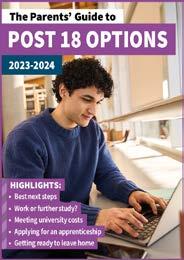
3. Be guided by league tables, but don’t obsess over them;
4. Check university entry requirements carefully;
5. Investigate financing options for both tuition fees and maintenance loans and apply with plenty of time.

Encourage your child to find part-time work over the holidays as this will help cover living expenses during term-time. We couldn’t cover 100% of Alfie’s living expenses, but the money he earnt as a support assistant in a summer camp helped make up the difference.
The Parents' Guide to Post 18 options
Includes information on:
• University
• Apprenticeships and degree apprenticeships
• Higher education courses at college
• Traineeships
• Jobs with training
• Gap Years
• Starting their own business
Buy now


Don’t worry if your child doesn’t have a career in mind - it’s OK not to know at this point. Philippa has always loved reading and chose to study English Literature; she’s really enjoying her time at university.
Don’t let the most famous university names drive your child’s decision. After looking into it, Leon found the best media studies course to suit him was at Southampton University, which has excellent industry links.
“
My school provided a lot of help about how to fill in the UCAS application, but I still needed to do some research myself.



All university applications are made through the University and Colleges Admissions Service (“UCAS”). There is a strict process and application procedure so it’s vital to know what information needs to be provided, in what format and when it needs to be submitted. Unlike schools that can sometimes flex deadlines for academic work, the UCAS deadlines are fixed and late applications may not be considered so it’s important to respect the timetable outlined.
Whilst your child needs to complete the application themselves, in the personal information section, there’s the option for them to add your name as “nominated access” which means that, with a few of their personal details, you will be able to track progress with their application directly either with UCAS or the universities they’ve applied to. This is very handy if they are travelling and out of contact, or not very good at keeping you updated on progress.
1. Personal details
2. Additional information
3. Student finance
4. Choices
5. Education details
6. Personal statement
7. Employment
The process itself is reasonably straightforward but much of the content requires considerable preparation before submission so this is absolutely not something to leave until the last minute. Applications that have been rushed and insufficiently thought-through are obvious and a slap-dash approach could jeopardise opportunities so ensure your child invests plenty of time in making the application.
UCAS doesn’t make applications for finance, but giving permission for them to share details on the application could speed up fund applications for either tuition or maintenance fees.
Choose wisely
Applications can be made for five choices this can be five versions of the same course at five different universities, or five different courses all at the same university or any combination thereof.
Usually, it doesn’t make much sense to only apply to one university, as entry requirements are likely to be similar whatever the course and this could prevent your child going to university at all if they fail to make the minimum grades. In fact, some universities prefer applicants to be focused on one course,
so multiple applications to the same university could indicate a lack of focus and count against the applicant. In some cases, universities automatically offer similar alternatives if an applicant doesn’t make their preferred choice, so using applications for multiple variations of a similar degree is a wasted opportunity.
Applying for courses that are completely different – irrespective of university location – could be interpreted that your child doesn’t
know where their interest lies and is unlikely to be looked upon favourably. If this happens, it might be better for them to go back to the drawing board and reconsider their course choices.
For regular parental updates regarding the UCAS application process it is worth signing up to the UCAS parents newsletter.

As only one application can be made across multiple courses it’s important to ensure that the overall application is relevant to each course tutor reading it. For example, if applying for economics and politics at one university, but economics and philosophy at another, it might be wise to focus subject (course) related discussion on economics (the common denominator in both cases) and use references in the personal statement to indicate suitability to study politics and philosophy. If all of the text in the course section relates to economics and politics, a tutor offering a place for economics and philosophy might interpret that this is not their preferred option and dismiss their application accordingly.
Try to encourage your child to apply for a range of courses with different
entry requirements in case academic expectations are surpassed or not met.
It is usually advised to apply for a mix of aspirational, realistic and safe university options.
Full education details must be included, and this includes results of any examinations taken, including:
• Examinations taken and what grades were awarded;
• Examinations taken but ungraded;
• Examinations taken but where results are yet to be released;
• Courses undertaken, even if they were not completed (an explanation of why they weren’t completed should also be provided).
Concealing information here could prove costly later down the line if it’s discovered the application was not wholly truthful: it could, in fact, result in offers being withdrawn.
Any employment experience (paid or voluntary) should also be included. All the better if there’s a direct link to the course application, but any experience is worthwhile and being able to distil and articulate why the experience was beneficial (in the personal statement) can make the difference between a typical application and a stand-out one.
Students applying directly will need to include details of references, but if applications are made via school or college, the educational institution will do this for them.
Email is the first choice of communications for most universities, so your child should ensure their email accounts are set to receive bulk and / or large emails.
Don’t forget to ensure that UCAS is notified straight away if personal details (address, email, telephone numbers) change during the application process. Forgetting to do this could mean important communications are missed.



As part of the university application, your child will need to submit a personal statement. Effectively, this is a short advert that lets your child showcase why they would make a great student and must not exceed 4,000 characters (about 500 words).
Your child can only submit one personal statement, even though they can apply to up to five different universities. This means they need to be careful that they are making themselves attractive to all the choices and not just their favourite.
Alongside your child’s predicted sixth form qualification grades and their teachers’ references, the UCAS personal statement will help university admission tutors decide on whether to offer your child a place to study with them. This is particularly important when interviews are not held as the personal statement may be the only opportunity your child has to showcase their talents, accomplishments and interest in applying for the course.
What should be included in a personal statement?
The personal statement is an opportunity for your child to provide the admission tutor with an insight into what they are like as an individual and why they are the right fit at their university. Admissions tutors want to make sure that both the course and university is the right choice for your child to excel.
Broadly speaking, a personal statement should demonstrate:
1. Your child’s passion for wanting to study their chosen subject or field;
2. What they’ve done to engage with this subject inside and outside of the curriculum;
3. Their interests and hobbies and how these relate to their chosen course;
4. What relevant experience they have;
5. What makes them unique – some hobbies may have nothing to do with the course, but tell a lot about their personality.
Content for a personal statement isn’t something that can be created overnight. It takes time to assimilate ideas and finesse them, so it’s good to encourage your child to start thinking about this well ahead of submission time. This doesn’t necessarily mean a heavy-handed desk bound session, but prompting them with questions on a regular basis to help them clarify why they like something or what makes an experience pleasant / unattractive for them will help them consolidate their
thoughts and prompt an understanding of ways to describe clearly what they like and dislike and why.
Prepare your child for a pretty long cycle of reading, editing and rereading their personal statement until it is ready to be submitted. If your child is in Year 12, it’s a good idea to return to school in September with a first draft of their personal statement completed. If they don’t yet know which course to study once they leave school, they can focus the draft on their skills, achievements and hobbies.
How to help your child stand out
If your child is struggling to think of reasons for wanting to study this course, it might be a good idea to talk with them about whether this is the right course for them. At this stage, it’s OK to go back to the drawing board and start researching alternative course options as its important to get this right.


Most students find that starting their personal statement is the hardest part. If your child is struggling to get motivated, encourage them to make a list of all the things they might want to include without worrying whether or not these will be included in the final version. Don’t let them get caught up in trying to think of a catchy opening line - this can be left until much later in the process.
A good way to approach the personal statement is to break it into more manageable chunks. This will make it less daunting and might even help them to structure it. Try using mind-maps, notes, spider diagrams, bullet points (or whatever works best for your child) to help them put pen to paper and get the ideas flowing - no one is expecting a perfect first draft.
Get your child to look at the university’s website to find out more about the course they are applying for. Help them identify the qualities and experience they will need to do well on the course as this can often help them decide what to write about.
Ask your child why they are applying for that course. Get them to expand on their reasons by asking them what excites them about the course, which modules they are particularly keen to learn more about and where they want the course to take them in their professional journey.
Mind-map their interests, hobbies, talents, skills, achievements and any involvement in clubs or societies. This exercise will help your child see what they’ve done so far and helps them identify examples to include in their personal statement.
With relatively few words allowed, it is essential that the university understands why this is the right course for your child. Wider reading and relevant work experience associated with their degree choice (even if it is for a day) will help illustrate their interest.
If they have chosen several different types of courses, they will need to focus on themes (i.e. creativity, communications, organisation, mechanics, research etc) rather than specifics (i.e. anything unique to one of the course titles). If possible, they should seek out the themes common to all the courses. Notwithstanding this, they should try hard to articulate their suitability and passion for their chosen courses, even if this means articulating in general terms rather than specifics.
It is worth noting that more academic universities will seek greater evidence of your child’s passion for the subject versus their skillset, less academic universities will place more weight on skills.


Let’s start with three tips for creating a favourable first impression:
1. Write in clear English. There is no need to try and impress with elaborate and flamboyant language – this is likely to have the opposite effect. They should use a simple style to express what they mean.
2. Use a sensible email address (if they are not using their school email)
3. Focus on positives (what they do like and how they would like to contribute/ develop, not what they don’t like and want to avoid).
Sequence, paragraph order and a broad remit covering a variety of aspects of their personality are important. This is no time to be shy or secretive. Your child should share drafts to get feedback and input from a range of people that have unique insight into their different strengths so they can confidently express what they’re good at.
Like CVs, there are certain descriptors that can be over-used (creative, great communicator, diligent, willing to learn, team player, problem solver to name but a few). It’s fine to use these expressions, but the focus should be on why this applies (and examples to prove or demonstrate why) rather than listing them without qualification.
A key way to stand out from others is to gain some experience, either by volunteering, working or enjoying hobbies. Universities will expect applicants to have shown resourcefulness in developing and pursing their interests. This will resonate all the more if your child can reflect on what they’ve learned and how it’s impacted them. This has special merit if it’s in a related area to subjects they’re applying for, such as someone applying for a medical degree might demonstrate a caring personality by volunteering at a local hospital, charity or hospice.
If a gap year is planned, it’s worth including an outline of how it is hoped this will expand their experience and knowledge in the personal statement.
✓ Start early - the personal statement will need a number of redrafts;
✓ Create a plan - encourage your child to make a list of all their achievements - academic, work-related, sport, music and art successes;
✓ Check the university websites to see what qualities and skills they want to see: an aptitude for maths? Creativity?
✓ Leave time for feedback - teachers, tutors, family members;
✓ Check for spelling and grammatical mistakes;
✓ Relate experience, study and hobbies to the course or to what university life entails;
✓ Write with passion and enthusiasm - can your child demonstrate wider reading? Additional courses completed? Work experience in a relevant field?
X Plagiarise or copy any other source - UCAS will check for this and it may have an impact on your child’s overall application;
X Exceed the 4000 character limit / 47 lines of text
The personal statement can be cut and paste from another source. To get a good statement, it will probably need to go through many iterations, so best not to type it directly onto the application form!
X Mention a university or course by name (if your child is applying to different universities or for courses with different titles);
X Demonstrate uncertainty or excuse potential bad results;
X Try to be overly funny or waffle.
Future aspirations
Interests and hobbies
Links to current or previous study
Specific modules that particularly appeal and excite (must link to all courses being applied to)
Reasons for choosing it
Online courses / lectures
Academic competitions
Passion and interest for the course
Community projects Charity work
Wider reading
Super-curricular
Additional qualifications
Clubs and societies
Duke of Edinburgh

What to include in a Personal Statement
What makes them ‘stand out’
Extra-curricular
Additional roles of responsibility Sport Musical Creative
Hobbies and interests
Volunteering
Specific job roles
Shadowing
Members of staff
Relevant experience
Observing Work experience
Virtual placements
Preparation
• Start early
Part-time jobs
• Check university website for course details
• Create a plan
Technicalities
• Do not refer to a uni by name
• Do not copy or plagiarise
Meetings
Summer placements Procedures
Internships
• Ask people for feedback Style
• Do not exceed 4000 characters / 47 lines
• Demonstrate passion
• Check spelling and grammar
• Organise it into a logical structure
• Make it personal


Once the application’s been submitted, there isn’t much to do other than sit back and wait. Different universities have different criteria on when they make their decisions and their timelines can vary, so responses to applications won’t be made at the same time. Don’t worry if your child’s friends get replies before you do: a delay in response does not necessarily imply bad news.
There are firm deadlines and, in the event that universities haven’t responded by the appropriate deadline, their response is automatically deemed as a rejection. On this basis, it could well be worth telephoning them a few days ahead of the deadline if there has
been no news to ensure there hasn’t been an error in losing the application.
UCAS records progress and status through their online programme “track” which has a secure login. At present there is no track app for phones. It needs to be accessed online.
Universities will make either a conditional offer (the application is accepted so long as the student achieves a certain level of grades when taking sixth form qualifications) or unconditional – the application is accepted and either the student has already met their minimum requirements (for example, if they have already taken their exams) or there are no pre-requisites notwithstanding exams have not yet been taken. Whilst
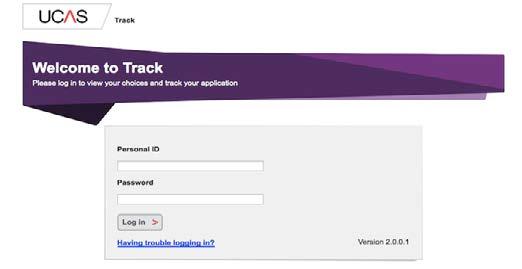
an unconditional offer ahead of final examinations is good news for a child because it eliminates additional pressure ahead of exam time, it can be bad news for you (and them!) in that the incentive to work hard and achieve the best sixth form grades possible is no longer necessary.
It’s worth remembering that whilst sixth form grades may no longer play a part in university entry with an unconditional offer, they will still be considered by future employers – especially if the final degree grade eventually obtained is mediocre.
Once all the offers are in, it’s decision time. Your child can only accept a maximum of two offers – one “first choice” (or firm) offer and, if this is conditional, an insurance offer in case they don’t meet the entry requirements specified in their first choice. If their first choice is an unconditional offer, there is no need to accept other offers but this also means that they cannot opt for an insurance place or be entered into Clearing.
Universities making any remaining offers must be notified that their offers have not been accepted.
An offer has been made, but your child must meet the requirements set out in the offer - usually exam grades.
An offer has been made and your child’s place has been confirmed regardless of exam performance. There may be some conditions attached to this type of offer, such as selecting the university as your child’s first choice.
Your child has been invited for an interview.
Your child has not been successful. The reason will usually be shown in UCAS Track.


Encourage your child to think carefully about their new choices

In the event that all universities / courses decline the application, there’s an opportunity to apply through “Extra” for alternative universities, but this cannot be activated until all declines have been made official.
If your child is eligible for UCAS Extra, an “Add an Extra Choice” option will be displayed on their UCAS Track profile. Applicants can only apply to one university course at a time until an offer is made. Available courses can be found using the “UCAS course search” tool found on the UCAS website.
Once your child accepts a university offer on UCAS Track - they won’t be able to accept an offer from anywhere else - so encourage them to think carefully about the decisions they make.
Keep your child’s spirits up. Applying through Extra can be stressful and your child might not get a place on their first, second or even third attempt. If your child is unable to find a suitable university through Extra, then they can choose to apply through UCAS Clearing, which begins in July.

Encourage your child to think carefully about why they were unsuccessful with their original choices. Consider whether the universities were appropriate and whether the course entry requirements truly reflected your child’s academic potential.
When applying through Extra, consider widening your child’s search for the right university and course. Perhaps consider a more suitable variation of the degree subject they initially applied for.
Contact the university directly
When applying to a university through UCAS Extra, it is worth noting that the university will have access to your child’s original personal statement and their initial university and respective course choices.
We recommend your child rings the university’s admission team directly prior to applying through Extra, particularly if the course or university style is different to their original application. A brief conversation with the university may make the difference between receiving a place or not.
Entry deadline for the universities of Oxford and Cambridge and most dentistry, medicine or veterinary science applications.
16 th Oct 31 st Jan Feb June 2023 2024
Entry deadline
The entry deadline for all other undergraduate courses. Try to keep within the internal deadlines set by your child’s school or college. This will provide enough time for the application to be checked and references to be provided.

UCAS Extra closes
Final date to apply in Extra for 2023. After this date, all applications must be made through Clearing.
End of June
A Level results are released from 8am - although some universities may have confirmed or denied their place prior to this. Try to make sure your child is present on the day in case Clearing is necessary. Early July Mid-Aug MidSep
The deadline for your child to confirm their first and insurance university from the offers that have been made. A later deadline may apply if your child is still awaiting a decision from a university.
Always keep to the deadlines specified by your child’s school or college
UCAS Clearing begins
Clearing opensstudents can begin researching available universities and courses prior to knowing if an offer has been confirmed.
Final deadline
Final deadline for university submission. After this date, your child must reapply next year as an independent student.

All university applications go through UCAS according to a prescribed format; however, there are still things your child can do to make their application stand out from others:
1. Complete each of the seven sections carefully;
2. Check for spelling errors and typos;
You may also be interested in:
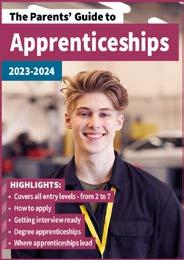
3. Include non-school activities, such as hobbies, volunteering and work experience, focusing on the impact they have had, to help demonstrate how your child is different from others;
4. Don’t rush the application and read it several times before submission;
5. Keep contact details up to date and apply with plenty of time.

Don’t worry if you can’t help your child with their personal statement as much as you would like. Kitty was able to get extra advice from our neighbour and one of my work colleagues.
The Parents' Guide to Apprenticeships
Includes information on:
• Types of apprenticeship
• The pros and cons
• Degree apprenticeships
• How to research an apprenticeship
• Top ten apprenticeship providers
• The application process and why it differs from applying to university
• How you can help them prepare for interview


Try to encourage your child to stand out from the crowd. Vanessa volunteered at the local veterinary surgery to find out first-hand what it was like to be a vet. Whilst most of her friends were working for money, Vanessa benefited from relevant experience.
Try not to let an unconditional offer stop your child from achieving the best A Level results they can. Paul was on track for BBC, but didn’t work as hard once he got his unconditional offer and failed a subject he could have passed.
“
My A level results were better than my predicted grades, but I still wanted to go to my first-choice university, rather than apply for somewhere with higher entry requirements.




A level results day has yet to be confirmed, but it is likely to take place during the third week of August.
Results are available from school as early as 06.00 am (collection time will vary depending on the individual school or college) and depending on the school, there may be different secure options to collect results, such as by telephone or via the parent portal. Check with the school / college to ensure you know what options are available.
Where possible, results should be collected in person or by a nominated representative (proof of nomination and ID will be required). If it’s not possible for your child’s results to be collected directly, they can login to Track to see the university’s decision (i.e. whether or not a place has been offered, or whether a place has been offered but on a different course). They will not know which grades they have achieved so they may not have the right information to make sensible decisions about next steps.
If your child is waiting on conditional offers, it can be a nerve-racking time. The best support you can provide is to avoid taking them on holiday so
that they are able to collect results themselves and benefit from all the help the school / college provides if they do not reach their predicted grades. Yes, they might be able to access Track while they are away (subject to reliable internet connections) but this will only tell them whether they have succeeded in gaining their university admission, not their grades – so they won’t know which options are available to them through Clearing.
Some applications through Clearing need to be made within specified time frames and working from different time-zones is an added complication that is best avoided.
If your child has accepted an unconditional offer there’s not much to worry about other than whether they have achieved their potential; their results won’t impact whether or not they get their university place.
It’s best to plan ahead for all eventualities – right down to making sure their mobile phone is fully-charged so they can make the all-important phone calls that might be necessary, having university contact numbers along with the UCAS reference number, and a pen and paper to note things down.
UCAS will receive your child’s results directly and update their system which adjusts to reflect university offer status. This happens from 08.00 am, but the system can be busy, so access could be delayed. It does not show your child’s results, so it may be better to wait until the results have been reviewed and consolidated, rather than being faced with a disappointing rejection (“unsuccessful”) without a full understanding of why the desired outcome hasn’t been achieved.
Celebrations ahead! If your child has a conditional offer and meets the grades, that offer will switch to “unconditional” and they should receive a confirmation letter from UCAS with details of next steps (it varies university to university). However, if they’ve matched their offer but since changed their mind about their university or subject choice, they can reject their offer and go through Clearing to try something else.
Previously, “adjustment” was a process where students who received better grades than anticipated could apply to another course or university where entry options were higher than they thought they could achieve. Few students took up this option, because most were happy to accept the university place they had been offered, and as of 2022 university entry, the adjustment process has been discontinued.

Yes, it’s disappointing, but there are still plenty of options available and it’s all important to keep your child motivated and not let them feel like a failure. This can be difficult if you feel they ignored warnings and did not put in enough effort, but this is, itself, a significant learning experience and may put them on a more productive path in the future.
UCAS will show the university status offer. It will show:
• “Unconditional” (place and course confirmed – this means that the entry requirements for the previously conditional offer have been met)
• “Unsuccessful” (conditions not met, no place)
• “Unconditional changed course” (they have not succeeded in achieving a place on their desired course, but are being offered an alternative with lower entry requirements)
Don’t forget, there is no guarantee that they will get the course they want through Clearing but it does provide alternatives and options if they realise they’ve made a mistake earlier on in the application process rather than reapplying the next year.
Students who want to apply to a different university, because they have outperformed the conditions of their offer, can decline their place and go through Clearing to apply for a course with higher entry requirements. If they use Clearing Plus, they will be signposted to relevant universities with spaces whose entry requirements match their results.
Options will vary dependent on the variance between their predicted grades and what they actually achieved. If they missed by a small margin, it’s possible to speak to the university and see if they will make an exception. Alternatively, they can apply for another place by going through Clearing. If they need time to refocus, a gap year could be an option or check out the information in “other choices”.
70% The percentage of university students securing a place at their “first” or “insurance” choice.
600 000
The number of applications UCAS supports each year
+33 000 students received a university offer through Clearing in 2022

Prepare in advance for all possible outcomes
If the marks seem inappropriate given your child’s skill level, it’s possible to apply for a remark. It’s vital your child speaks to their subject teacher first and confirms their opinion.
An important consideration when applying for remarking is that, whilst there’s a possibility that the paper may have been unfairly marked down and, following reassessment, a higher grade allocated, the reverse could also be true, in which case your child may be allocated a lower grade than originally awarded.
If applying for re-grades, keep the university advised of both intention and progress. They are not obliged to hold the place open through Clearing.
No matter the reason, a student can decide to decline a university place. It could be because their circumstances have changed, they have decided on an alternative course, they don’t want to go to university or other reasons. Declining a place is not a problem but remember: it is an irreversible decision and they will not be able to change their mind and get the offer reinstated once they have turned it down.
So before declining a place, make sure other options have been thoroughly researched (or confirmed, if it is to accept an offer elsewhere) and it is absolutely the right choice. It would be a great shame to turn down a good opportunity in the hope of achieving a better one and then ending up with no offer at all.


Clearing is the system universities use to fill up any vacancies they have on a course. It’s available to students that don’t have any offers: either because they have not succeeded in meeting criteria for conditional offers or because they have rejected all the offers they have.
Don’t feel that because a university offers a university place through Clearing this means the courses are undesirable. It is possible that fewer students applied than anticipated; students didn’t achieve the minimum entry requirements; or successful students had a change of heart.
Students must apply (through UCAS) to participate in Clearing.
If a university hasn’t responded and confirmed the place for which your child originally applied (for example, they may be just below entry requirements and the university is considering whether to make an offer) they will not be eligible to apply for another course through Clearing until such time as they have received a rejection. In this scenario, it’s worth making direct contact with the university in question to get an update on status.

Use the UCAS website to find out which courses are available via Clearing. This will not be a full list of all university courses, but a list of all those that are available now that results have come out and universities know whether or not the students to whom they have offered places have met the grades. Of course, some courses will not appear because they are fully subscribed, but there will still be plenty of choices. In some cases, courses in which your child may have been interested but did not meet entry requirements might appear if many students failed to meet the entry requirements at the time of results.
requirements, and whether the course is suitable for them. Students need to call themselves rather than have someone call on their behalf. The university is going to consider whether to offer them a place, not their representative! In some cases, the universities may make an offer over the phone – but if not, they will revert relatively quickly.
It may seem obvious, but worth remembering: the most popular universities have the most applicants and field spare places first, so your child needs to be ready to act quickly to secure the best options.
Over 70,000 students went through Clearing in 2020
Some courses (such as Oxbridge and medicine) do not offer places through Clearing.
Don’t waste valuable time It’s a good idea to speak to the university in person before applying for a place through Clearing to find out if the course is still available, whether your child meets the entry
Useful links
UCAS Clearing search tool
Clearing Plus is a new UCAS Clearing tool which will match unplaced undergraduate applicants to relevant courses with vacancies. Designed to help speed things up, UCAS uses what they know about your teen to suggest courses they might like to express an interest in. Your teen can access this tool by logging into their UCAS account and clicking on the button ‘View Matches’. We recommend that your teen uses this alongside the Clearing search tool.

Clearing can only be used to apply for one course at a time, so it’s important to make sure this is the right course. A good way to do this is to research ahead of results, anticipating the need to use Clearing. If great results mean this extra research doesn’t come in handy, so much the better; however, in the event of needing Clearing, it will be time very well spent.
Check your child likes the university
If time permits, your child should pay a visit if it’s at a university they haven’t visited before (if your child dislikes the atmosphere of the university, they’re unlikely to perform well there); and all the other essential considerations continue to apply (regarding accommodation, distance from home, finance etc.). It’s not sensible to take Clearing as a “last” attempt to get on any course, anywhere just to get to university.
Keep your child’s spirits up. Clearing can be stressful and your child might not get a place on their first, second or even third attempt. But don’t give up: persistence and determination are omnipotent!
Be especially mindful of deadlines during Clearing. There are black and white restrictions on how long places will be held open and offers extended so ensure that your child has fully understood this. If universities do not hear from your child within the time outlined, they may simply assume your child is not interested and withdraw the place. Very often, in such circumstances, that decision is irreversible, and neither you nor your child are likely to get them to put the offer back on the table.
Universities understand that thought and consideration need to be given in accepting a place (especially if it is different from what was expected or previously planned for), but ultimately, they want their students to be very pleased to attend their universities and, if they don’t feel this, they will extend the offer elsewhere (or chose to run with a smaller learning group).
Being contactable is crucial
Ensuring contact details, such as phone number, address and email account, are accurate throughout the entire UCAS process is very important but especially during Clearing – otherwise your child could miss out because details are being sent to the wrong place.

Going through Clearing was never something I really considered - or knew much about! My A Level results did not entirely go to plan and I missed out on my first choice university by one grade - I remember feeling really upset. I tried ringing the university, but they were not willing to move on their decision.
Although I did receive the grades to gain an offer from my insurance university - this was no longer somewhere I wanted to study. I decided to try Clearing.
This was really stressful. It was now 11am and most of the courses through Clearing had gone.
I remember calling a few universities - but with very little luck. After a few more phone calls, I eventually found a university course I liked which was still available. They provided me with a provisional offer over the phone and I applied.
In hindsight, this was a huge risk, which luckily paid off - I cannot imagine studying anywhere else! It was only until later that I realised Clearing places were released well before A Level results day. My advice to anyone applying to university is to check this list carefully and research some universities and courses just in case you may need to use it! A lot of stress could have been avoided and I might have not been so lucky.

Did your child meet the required grades for their first choice university? NO
YES
Are their grades better than expected?
YES
Your child has an offer from their first choice university. NO
Well done
University track not updated?
Contact the university for more information.
Great
Your child has an offer from their insurance university.
YES
Has your child still been offered a place in their first choice university on university track? NO
Has your child been offered a place to their Insurance university?
YES NO
To find out more download
The Parents’ Guide to Apprenticeships 2023-2024

It is important to understand that university isn’t for everyone. Some children may know straight away, whilst for others it may only become apparent during the university application process. An increasingly popular alternative is apprenticeships and traineeships. Or there are school leaver programmes which give a direct route into employment and can result in further qualifications. If your child needs more time to figure out their next steps, a gap year can offer breathing space.
Apprenticeships combine study at college or university with work. If your child knows what sort of job they might like to do, this provides an ideal opportunity to go straight into the workplace whilst still formally developing their skills and gaining a qualification. It’s certainly not an easy option – holding down a full-time job (albeit with one or two days each

week to attend university) and keeping up with studies can be tough. But with a salary, holiday entitlement and sick pay along with access to the university experience and no post qualification loan (their employer and the government fund all costs), it makes for an attractive proposition. Most apprenticeship last for about two to four years and the minimum wage is £4.81 per hour. There are entry requirements at four different levels, from the equivalent of five GCSE passes to the equivalent of a master’s degree.
Traineeships are much shorter and last six weeks to six months. They are a great way to prepare for apprenticeships (if your child doesn’t have the minimum entry requirements) or to get first-hand experience of what a job is like.
Useful links Apprenticeships
School leaver programmes offer opportunities to join the workplace straight after sixth form studies and commence skills development and career progression through experience as well as studying to obtain a nationally recognised qualification. Entry requirements vary from employer to employer.

Taking a year out between school and university can provide the opportunity to find out a little bit more about personal preferences rather than being directed by schools, colleges (and parents!). It’s also a good opportunity to find out how your child fares fending for themself.
A gap year can be taken while entry to university is being deferred, once a place has been accepted (allowing a year between leaving school and starting university), or if university is not the next step at all.
Traditionally, this is a year spent travelling overseas, but it needn’t focus exclusively on that. Volunteering and work experience can also be incorporated and inform your child’s
Many students take a Gap Year after finishing school or college Useful links
likes and dislikes, as well as giving them valuable first-hand experience in a variety of areas they may not have had chance to try out. However, for some a gap year can be distracting and, if not well-planned, could prove somewhat directionless, which is unlikely to be beneficial.
Some students want to enter the world of work straightaway or, if they haven’t achieved the results they had hoped, they could always try retakes or other sixth-form subjects.
Should your child decide to reapply to university for any reason, be sure they save a copy of their UCAS application so they do not have to rewrite everything, as the original application is deleted from the central database each year. GOV.


Results day is daunting and exciting. No matter what the outcome, there are still choices to make and reflections to be made.
1. If your child gets what they wanted, well done;
2. Don’t assume if they exceed expectations that they will change the choices they have already made;
You may also be interested in:
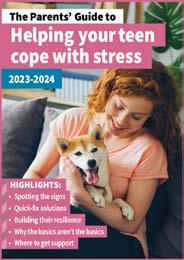
3. Poor results do not equate to a poor future: there are still lots of options;
4. Be mindful of time when applying through Clearing - but don’t rush the process;
5. Don’t forget there are plenty of options other than university including an apprenticeship, traineeship or a gap year.

University isn’t always the best option, so support your child in considering alternatives. Dhruv was always a more active student so learning through an apprenticeship with Network Rail suited him so much better than going to university.
The Parents' Guide to Helping your teen cope with stress
Includes information on:
• How to spot the signs of anxiety and stress
• Ways to help right away
• Long term strategies to build their resilience
• Coping with rejection
• Encouraging healthy routines
• Looking after the basics
• Habits that can make stress worse
• Where and when to get help and support Buy now


Don’t leave preparing for Clearing until results day. Jenny was worried she hadn’t reached her conditional offer, so we spent time together checking other options in Clearing. She was right, but we were able to act immediately on our back-up plan.
f your child is taking a gap year, make sure it counts. Richard needed a gap year to have a break between studies. He spent six months gaining experience in the work place, which also financed six months travelling around South-East Asia.
I
never imagined my son could budget for himself, but with a few tips he proved really good at it. “


Preparing your child

Budgeting in advance
and learning to stick to it is key

Once a university place has been secured, it’s time to celebrate. Make the most of enjoying the moment and be sure to share with your child how pleased you are for them –especially if the university is one of their preferred choices but not necessarily yours!
After the celebrations, it’s time to prepare. This is a wonderful opportunity and you’ll want to help your child make the most of it. Some useful ideas include:
Let them take control of moving themselves as much as possible: writing their own “to do” lists, choosing a move date, deciding what needs to be done. You can always help them by checking their lists but try not to be the one orchestrating events.
Of course you’re going to miss them, but try not to be over-bearing about how often they should stay in touch once they’ve moved out. They need to start relying on themselves rather than continually checking in with you. That said, it’s only fair that you should come to some agreement about how often they’ll communicate, so you both know what to expect. For example, if you want them to telephone you every week, chat this through with them and give them a means of doing so.
Reassure them that they can call if they need help or to chat, but avoid presenting yourself as their personal rescuer when things don’t quite go the way they’d like. Coping with life is part of growing up and becoming independent. You are their parent, not a magic fixer!

Teach them how to budget. If you’re supporting them financially, don’t budget on their behalf by paying bills direct or limiting their money to a weekly allowance – in the long run it won’t help them. If they receive financial loans, it’s highly likely they’ll get the full term’s allowance at the beginning of term straight into their bank account, so it could be easy for them to spend all the money and then have nothing for the rest of the term.
Teach them how to budget for rent, bills, course materials, food and entertainment so they understand what expenses are coming up and how to put aside money so they have enough to cover the cost of living.
Overspending is an issue faced by many students, which can cause anxiety for both you and your child. Consider the following:
• Make sure they apply for student discount cards, such as the National Union of Students (NUS) card and a 16-25 Railcard;
• Encourage your child to find parttime work, ideally during holidaytime, but term-time too if money is a significant issue. However, make sure your child is not neglecting their academic studies as research shows working more than 20 hours each week during term-time can have a negative impact on academic performance;
• Encourage your child to speak to a student money advisor at their university;
• Give your child tips on money saving ideas, such as buying non-branded food items and attending free events; and as a last resort
• Speak with your child’s bank about extending their interest free overdraft.
Spend some time cooking with your child, so that they know how to prepare a few meals with fresh ingredients. These should be easy one-dish dinners that don’t require lots of pots, pans and other kitchen utensils. This will not only stand them in good stead for inexpensive and healthy eating, but being able to host dinners will make them popular with other students too.
Remind your child to check their new timetable, pre-reading and travel time so they become familiar with the rhythm their new life will take.
Some courses may also require several key text books. Check whether the university has a second-hand book shop and try to visit early to find the best bargains.
Useful links
Which? University Budget calculator
Managing your money


There are two types of student accommodation depending whether the university is campus or not. Campus universities have student accommodation within the same complex as the university and social buildings, non-campus universities usually have dedicated buildings usually quite close to the university buildings.
The great thing about student accommodation is that it offers private rooms specifically designed to promote study and all the other tenants are students – typically within the same year group. It’s a fantastic way to meet students on different courses, of the same age group and in a similar situation. We’d recommend student accommodation for year one, if possible.
If the university is close enough, they could stay at home with you. Financially this is a good choice, as they won’t incur expensive rental charges although transport costs may be higher. You’ll both need to adapt to
different “house rules” about comings and goings, as your child (who is now an adult!) at university is very different from a child at school. Again, this option may restrict your child’s ease in meeting other students and, depending on journey time, may also limit their participation in co-curricular activities because they are not on the doorstep.
If your child is going to university with a group of existing friends, they may prefer to live in private accommodation – for example renting a house with four bedrooms, where each can take their own bedroom and share the other areas of the house. This can (though not always) be cheaper than student accommodation. They won’t have some of the facilities offered by student digs (i.e. a canteen) but they may feel this offers a more homely option.
The downside is that they may not get to meet other students as easily as well as having to organise their own bills, such as gas, electricity and internet. It can be a great choice once they’ve found their feet, perhaps in years two or three.
• Does rent include the room for the year, or will your child have to move out all their stuff during holiday times (sometimes the rooms are rented during holidays to others)?
• What’s included in rent? Are there additional expenses such as gas, electricity, water rates, WiFi / internet, etc?
• Where are the laundry facilities?
• Is there catering (obviously more expensive) or will your child have access to a kitchen and be responsible for cooking their own food?
• If they have a car, is there parking available?
• How far are halls from the university itself – what are the travel options?



Help your child to organise what they’ll need to take with them when they go to university. This means everything from course materials, laptops, phones to bedding, cooking equipment and clothes plus all the appropriate paperwork such as bank accounts, TV licences, insurance and new travel passes. It will make their life easier if they know how to plan ahead and it will make you feel more comfortable knowing they are well-prepared.
Knowing exactly what to pack will largely depend on the type of accommodation your child has applied for. Although most halls of residence provide students with single standard size beds, some private accommodation or alternative arrangements may differ - so it is always worth checking before purchasing any bedding.
Try to keep to the basics when it comes to kitchen utensils and try to purchase items which are easily identifiablebright colours or patterns will help your child keep track of their items.
If you are helping your child move into their new university accommodation, then it may be a good idea to factor in some time for a trip to the local shopping centre for any last minute purchases.
• Passport
• Driving licence
• All university and accommodation correspondence
• Insurance documents
• Bank details
I’m interactive!
Click each item for inspiration!

Essentials:
Alarm clock
Bin (small)
Books
Coat hangers
Mirror
Extras:
Beanbag
Cushions
Door wedge
Extra storage
Family photos
Over door hangers
Plant
Rug
Wall art / posters
Essentials:
Bath towels
Deodorant
Hairbrush
Hand towels
Nail clippers
Razor
Sanitary towels
Shampoo
Shower gel
Toilet roll
Toothbrush / paste
Wash bag
Extras:
Bath mat
Flip flops
Hair dryer
Make-up
Essentials:
Bed sheets
Duvet
Duvet set
Mattress protector
Pillows
Pillow cases
Extras:
Diffuser / oils
Mattress topper
Night lamp
Warm blanket
Complete sets
Essentials:
Baking tray
Bowls
Cheese grater
Chopping board
Cling film
Corkscrew
Cutlery
Glasses
Knives
Mugs
Plates
Pots and pans
Scissors
Tin foil
Tin opener
Tea towels
Wooden spoons
Moisturiser
Complete sets
Essentials:
Antibacterial wipes
Antiseptic cream
Hot-water bottle
Hydration salts
Painkillers
Plasters
Sewing kit
Torch
Tweezers
Essentials:
Casual clothes
Evening clothes
Fleece
Gym clothes
Smart clothes
Pyjamas
Smart shoes
Sports equipment
Socks
Rain jacket
Swimwear
Thermals
Trainers
Underwear
Winter clothes
Essentials:
A4 folders
File Dividers
Highlighters
Notepad / paper
Pens and pencils
Plastic wallets
Post-it notes
Stapler
White-tac
Extras: Calculator
Desk lamp
Diary / planner
Essentials: Batteries
Chargers
Extension lead
Laptop
Laptop case
Multi plug adaptor
Extras: Mouse Keyboard
Printer
Printing ink
Speakers
Television
Extras:
Casserole dish
Colander
Masher
Measuring jug
Plastic bag sealers
Recipe books
Scales
Shot glasses
Slow cooker
Spice jars
Tupperware
Vegetable peeler
Whisk
Wok
Essentials:
Coat hangers
Door wedge
Iron
Laundry bag
Washing powder
Wet wipes
Extras:
Drying rack
Mini vacuum
Laundry basket
Essentials:
Bank accounts
CV and references
Discount cards
Exam certificates
NHS number
NI number
Passport
Passport photos
Uni paperwork
Extras:
TV licence
Extras: Bicycle Board games
Computer games
Dress-up costumes
Fairy lights
Games console
Gym equipment
Photo albums
Playing cards
Polaroid camera
Projector
Recipe books
Sports equipment


You’re bound to feel excited and proud about what your child’s achieved as they embark on their first independent step towards adulthood by attending university. But it may be tinged with an element of sadness as you realise your parenting role is about to evolve into something different. Please don’t forget your child still needs you very muchalbeit in a different way.
Be there for them! Leaving school and long-term friends to start a new life is exciting but it’s emotional too. For your child, potentially everything is about to change. The life that has been so familiar to them (especially if they’ve been at the same school since Year 7) disappears. They have new teachers, a new place to live, new subjects to study in a different way from how they’re
used to studying, and a new peer group in which to find friends.
Even if they are not moving away to study, there’s still much in their new life that will be different from before. In this sea of change, you are likely to be their only familiar anchor. Yes, they need space to adapt at their own pace, but they may also need to know you are still there for them and that there is some certainty and consistency in a fast-changing environment.
And finally ... don’t forget about yourself! University is a short-lived experience that leaves a life-long impression so, alongside your child, make sure you also enjoy all the rewards and challenges this unique opportunity offers.

A
University of Aberdeen
Abertay University (formerly University of Abertay Dundee)
Aberystwyth University (Prifysgol
Aberystwyth)
Anglia Ruskin University
Anglo-European College of Chiropractic
Archbishop of Canterbury, The Arden University (formerly known as Resource Development International)
Ashridge Business School
Aston University
Bangor University (Prifysgol Bangor)
University of Bath
Bath Spa University
University of Bedfordshire
Birkbeck, University of London
University of Birmingham*
Birmingham City University
University College Birmingham
Bishop Grossteste University
University of Bolton
Arts University Bournemouth
Bournemouth University
BPP University
University of Bradford
University of Brighton
University of Bristol*
Brunel University London
University of Buckingham
Buckinghamshire New University
C
University of Cambridge*
Canterbury Christ Church University
Cardiff Metropolitan University
(Prifysgol Metropolitan Caerdydd)
Cardiff University (Prifysgol Caerdydd)*
University of Chester
University of Chichester
City University London
Courtauld Institute of Art, The (degrees awarded by University of London)
Coventry University
Cranfield University
University for the Creative Arts
University of Cumbria
D
De Montfort University
University of Derby
University of Dundee
Durham University*
E
University of East Anglia
University of East London
Edge Hill University
University of Edinburgh, The*
Edinburgh Napier University
University of Essex
University of Exeter*
F
Falmouth University
G
University of Glasgow*
Glasgow Caledonian University
University of Gloucestershire
Glyndŵr University (Prifysgol Glyndŵr)
Goldsmiths, University of London
University of Greenwich
Guildhall School of Music and Drama
H
Harper Adams University
Hartpury University
Heriot-Watt University
University of Hertfordshire
Heythrop College (degrees awarded by University of London)
University of the Highlands and Islands
University of Huddersfield
University of Hull
I
Imperial College of Science, Technology and Medicine
Institute of Cancer Research
Institute of Education, University of London
K
Keele University
University of Kent
King’s College London*
Kingston University
L
University of Central Lancashire
Lancaster University
University of Leeds*
Leeds Beckett University (formerly
Leeds Metropolitan University)
Leeds Arts University
Leeds Trinity University
University of Leicester
University of Lincoln
University of Liverpool*
Liverpool Hope University
Liverpool John Moores University
Liverpool School of Tropical Medicine
University of London
London Business School
London Institute of Banking and Finance, The London Metropolitan University
London School of Hygiene and Tropical Medicine
London School of Economics and Political Science, The (LSE)*
London South Bank University
University College London*
Loughborough University
M
University of Manchester*
Manchester Metropolitan University
Middlesex University
N
NCG
Newcastle University*
Newman University, Birmingham
University of Northampton, The Northumbria University Newcastle
Norwich University of the Arts
University of Nottingham*
Nottingham Trent University
O
Open University, The University of Oxford*
Oxford Brookes University
P
Plymouth University
University of Portsmouth
Q
Queen Margaret University, Edinburgh

Queen Mary, University of London*
Queen’s University Belfast
R
Ravensbourne
University of Reading
Regent’s University London
Richmond, The American International University in London
Robert Gordon University, Aberdeen
University of Roehampton
Rose Bruford College of Theatre and Performance
Royal Academy of Music
Royal Agricultural University
Royal Central School of Speech and Drama (University of London)
Royal College of Art
Royal College of Music
Royal College of Nursing
Royal Conservatoire of Scotland
Royal Holloway, University of London
Royal Northern College of Music
Royal Veterinary College, The S
University of Salford
School of Oriental and African Studies (SOAS), University of London
University of Sheffield*
Sheffield Hallam University
University of South Wales (Prifysgol De Cymru)
University of Southampton*
Solent University
University of St Andrews
St George’s, University of London
University of St Mark and St John, Plymouth
St Mary’s University, Twickenham
Staffordshire University
University of Stirling
University of Strathclyde
University of Suffolk
University of Sunderland
University of Surrey
University of Sussex
Swansea University (Prifysgol Abertawe)
T
Teesside University
Trinity Laban Conservatoire of Music and Dance
U
University of the Arts, London
University College of Estate Management
University College of Osteopathy
University of Law, The University of Ulster
W
University of Wales (Prifysgol Cymru)
University of Wales Trinity Saint David (Prifysgol Cymru Y Drindod Dewi Sant)
University of Warwick*
University of the West of England, Bristol
University of West London
University of the West of Scotland
University of Westminster
University of Winchester, The University of Wolverhampton
University of Worcester
Writtle University College
Y
University of York*
York St John University
* Russell Group Universities

www.theparentsguideto.co.uk

Parent Guides
Our range of interactive guides provide you with easy to follow advice, hyperlinks to reliable sources and the most up-todate information.
Parent newsletter
Sign up to our parent newsletter and receive free support, advice and resources on how you can help your teenage children straight to your inbox.


Support articles
You may be interested in:

1. Helping your teen find work experience
2. Teach your teen the skills to study effectively
3. Stressed out teen? – 10 ways to reduce stress instantly
4. Why starting a business helps develop transferable skills
5. Ways to keep your teen safe online

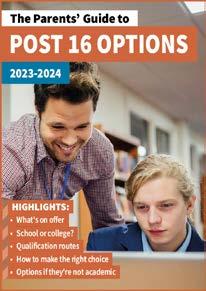
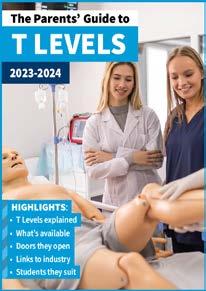
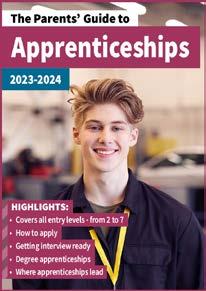
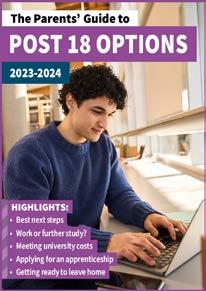
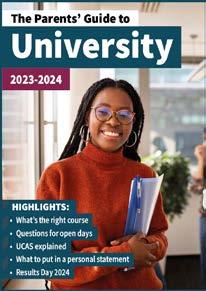
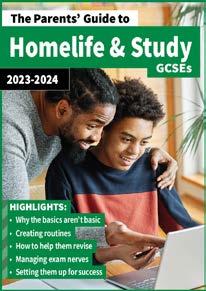
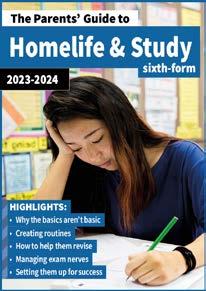
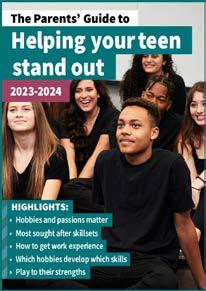
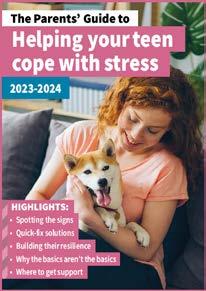
Parent Guides:
Our range of interactive guides provide you with easy to follow advice, hyperlinks to reliable sources and the most up-to-date information. Shop now
